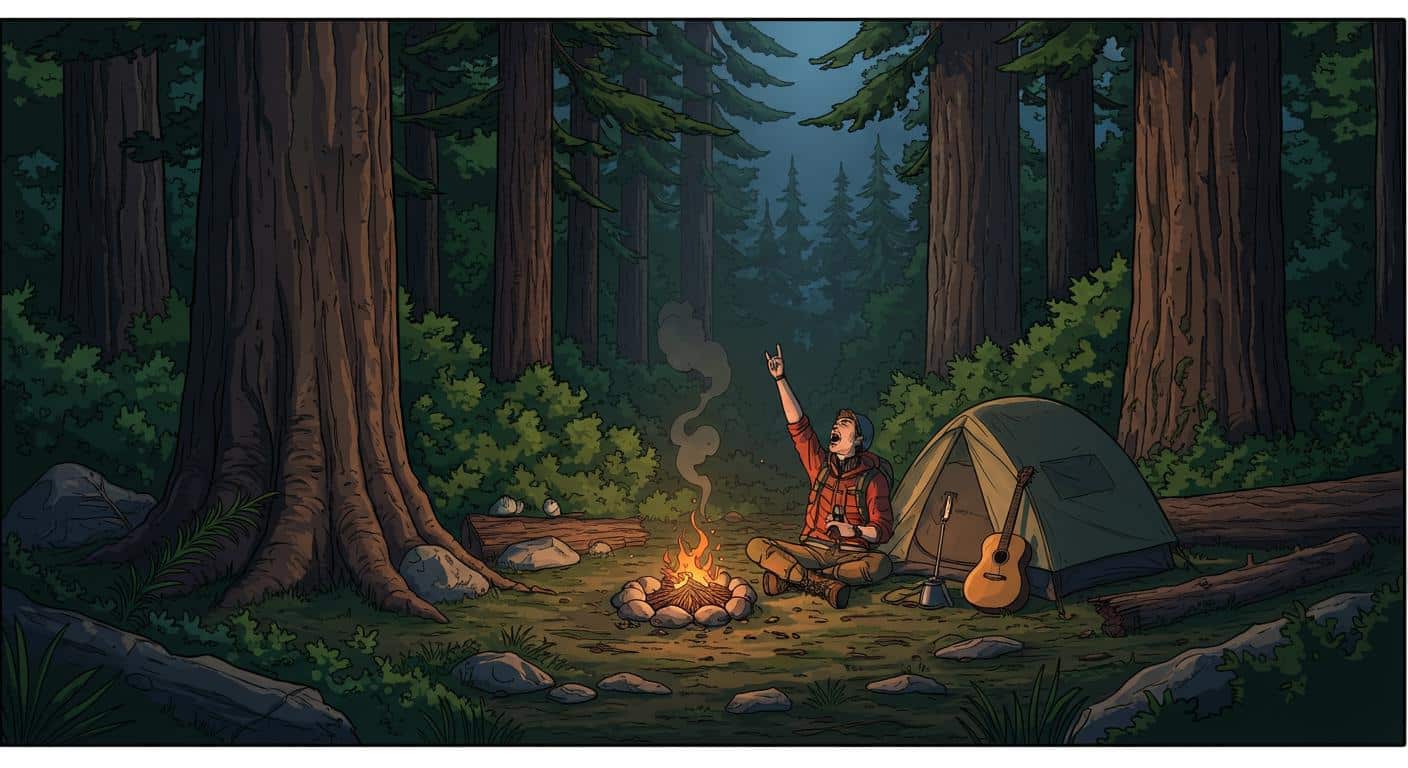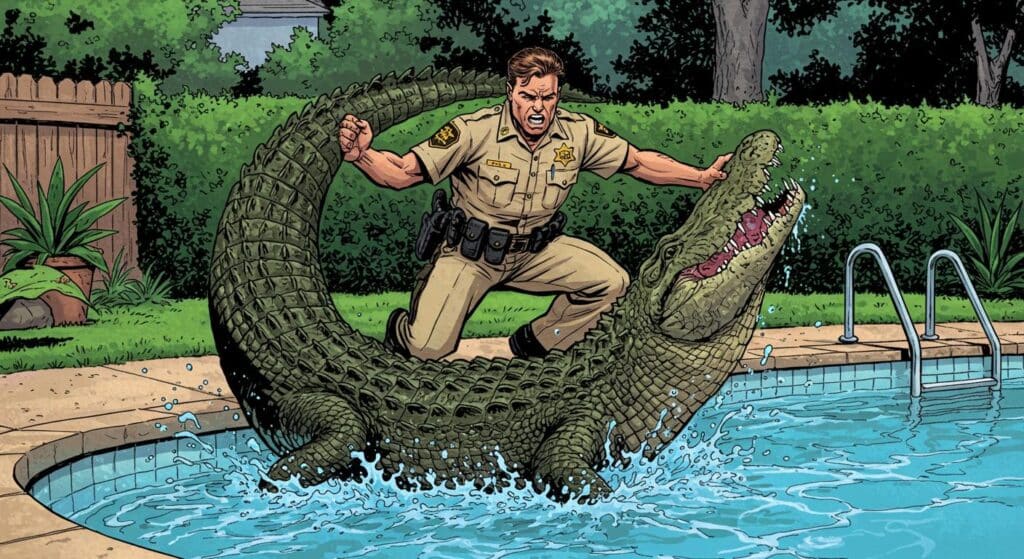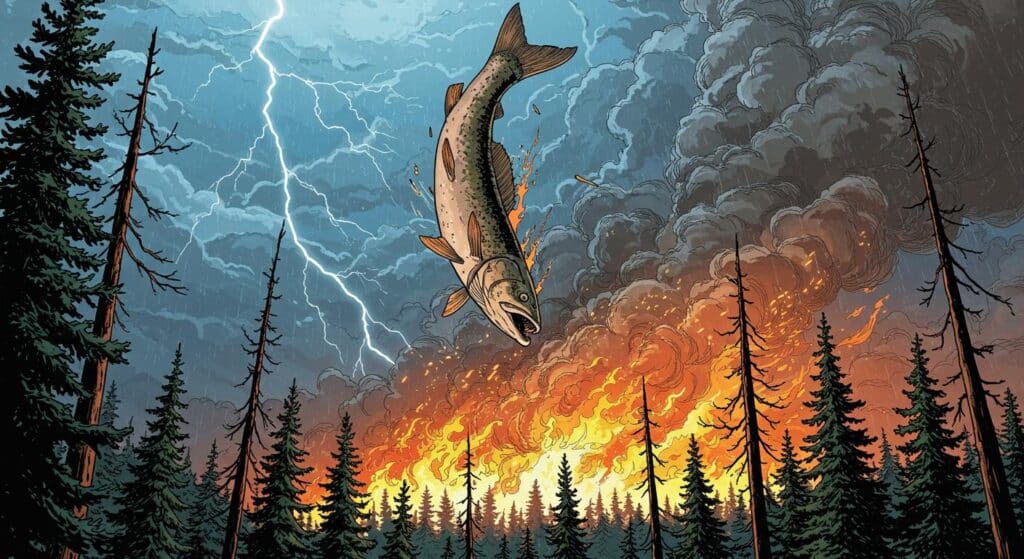There are classic cases of mistaken identity—unwitting twins switched at birth, poodles mistaken for sheep, and, apparently, Nickelback mistaken for a distress signal in the British Columbia backcountry.
The Vancouver Sun chronicles a recent episode that played out near Kelowna’s Boulderfields: Central Okanagan Search and Rescue (COSAR) found itself springing from training into an active operation after hikers reported what sounded alarmingly like repeated cries for help wafting through the pines. The source? Not a lost backpacker, but a lone camper serenading the wilderness with some of Canada’s finest post-grunge exports.
When the Forest Calls (or Hums Power Ballads)
Described in the Vancouver Sun, the incident began innocuously enough. COSAR’s crew, already in the middle of a training session, received not one but two 911 calls from hikers. The callers, convinced that someone was in trouble, cited sustained “yelling” echoing from within the Boulderfields—a spot favored by climbers and, apparently, impromptu Canadian rock enthusiasts. Responding promptly, the rescue team shifted gears: drones were brought in, RCMP officers joined the effort, and teams split to comb the woods and forest roads. In a detail highlighted by the outlet, the crew’s first arrivals themselves picked up on “faint yelling” but couldn’t distinguish the words—an ambiguity that, in the wilds, tends to tilt toward caution rather than cynicism.
The searchers soon tracked their quarry. Rather than a climber stranded mid-pitch or a hiker facing calamity, team members found a camper “singing his heart out to the trees, blissfully unaware that the acoustics of the Boulderfields had turned his tent-side concert into an accidental distress signal.” The Vancouver Sun notes that his “earnest” renditions of Nickelback’s greatest hits, as ricocheted off silent rocks and old-growth timber, were interpreted as desperate pleas by the passing hikers.
Not All Who Wander Are Lost—Some Are Just Loud
Search manager Duane Tresnich leaned into the moment’s inherent absurdity when speaking with the outlet, remarking, “He wasn’t in trouble—unless you count his singing.” The rescue crew, having transitioned from would-be lifesavers to accidental music critics, took it in stride, extending gratitude to the hikers who made the call and reminding the public that, as always, their services are free. The money saved, they quipped, “could be spent on singing lessons.” Officials pointedly acknowledged in follow-up comments that, despite the unexpected outcome, it’s better for a search to end in mild embarrassment than in tragedy.
The episode also underscores the peculiar natural acoustics of Boulderfields—where vocal enthusiasm, rather than volume alone, can carry far enough to startle the unsuspecting. Earlier in the report, it’s mentioned that the camper’s isolation left him “blissfully unaware” that his rock-powered reverie had triggered a rescue response, adding just a touch more irony to an already unusual evening.
The Unintended Symphonies of the Wild
If there’s a lesson to be found amid the forest echoes and flying drones, it’s probably this: sometimes what sounds like a cry for help might actually be the world’s most geographically isolated rock concert. In another minor twist, the Vancouver Sun points out that all parties—rescuers, hikers, and camper alike—walked away with little more than a good story (and perhaps a renewed appreciation for the soundproofing capacity of civilization).
Which begs the obvious: should COSAR add “personal taste in music” to their list of risk assessments? Or is the real cautionary tale about acoustics—how a little enthusiasm, some open trails, and a few Nickelback anthems can so easily cross the line from solo concert to search-and-rescue callout?
At the very least, next time the woods come alive with the sound of (possibly off-key) music, one hopes the rescue team is packing both a first-aid kit and a sense of humor. Because as it turns out, the trees really do have ears—and sometimes, they call 911.







